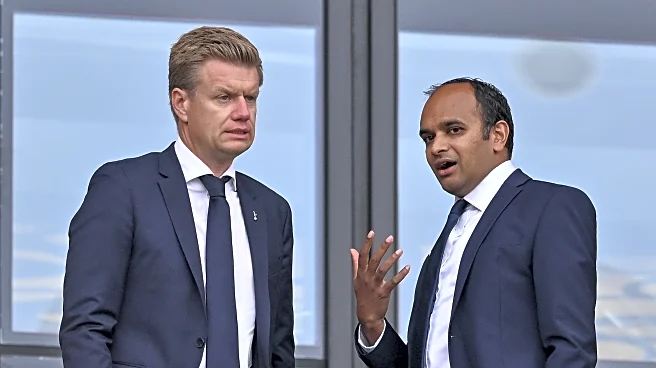Rapid Read • 8 min read
In Lagos, Nigeria, the Christian Mission for the Deaf offers a unique church experience tailored for deaf individuals. The church, located in the Somolu suburb, conducts services entirely in sign language, allowing deaf worshippers to engage fully in their faith. Pastor Imoh Udoka, who lost his hearing due to meningitis at a young age, leads the congregation alongside Pastor Remi Akinrenmi. The church serves as a vital community hub for its members, providing a space where they can connect and communicate freely. It also runs outreach programs to other deaf communities and offers sign language classes to hearing children of church members and some hearing students.
AD
The church plays a crucial role in addressing the lack of inclusive religious spaces for deaf individuals in Nigeria, where traditional beliefs often stigmatize disabilities. By providing a safe and understanding environment, the church helps break the isolation that many deaf people experience. It fosters a sense of belonging and community, which is essential for social and emotional well-being. The church's efforts highlight the need for more inclusive policies and infrastructure to support people with disabilities in Nigeria, where advocacy for such changes has been slow due to limited political will.
The church plans to continue its outreach programs and expand its sign language teaching initiatives. These efforts aim to strengthen the community and improve communication skills among its members, further integrating them into broader society. Advocates hope that the church's success will inspire more inclusive practices and policies across Nigeria, encouraging other institutions to accommodate people with disabilities.
The church's existence challenges societal perceptions of disability, promoting a more inclusive and accepting view. It underscores the importance of community-driven solutions in addressing gaps left by inadequate public infrastructure and legislation. The church's model could serve as a blueprint for similar initiatives in other regions, fostering greater inclusivity and understanding.
AD
More Stories You Might Enjoy











